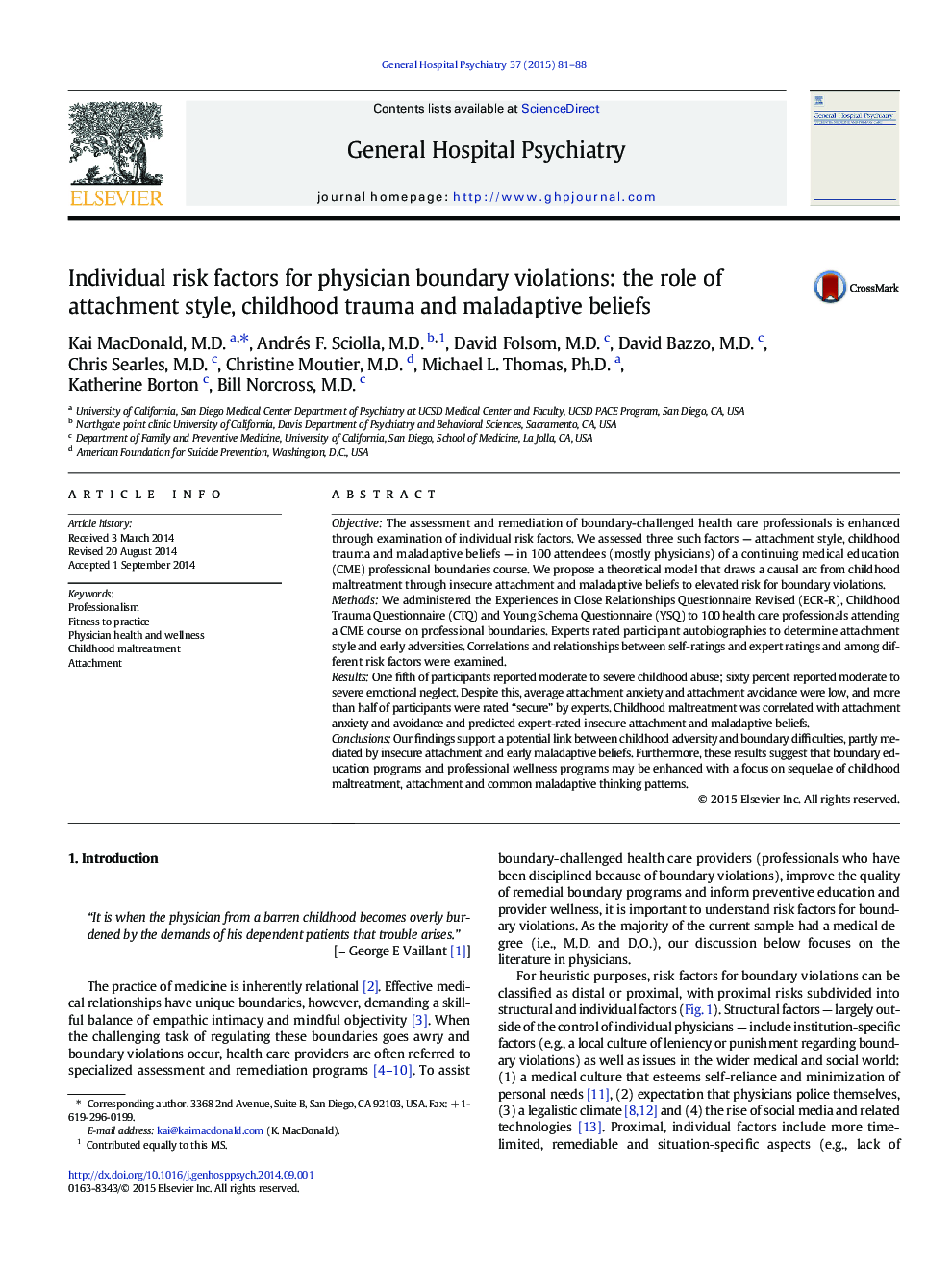| کد مقاله | کد نشریه | سال انتشار | مقاله انگلیسی | نسخه تمام متن |
|---|---|---|---|---|
| 6082299 | 1205684 | 2015 | 8 صفحه PDF | دانلود رایگان |
ObjectiveThe assessment and remediation of boundary-challenged health care professionals is enhanced through examination of individual risk factors. We assessed three such factors - attachment style, childhood trauma and maladaptive beliefs - in 100 attendees (mostly physicians) of a continuing medical education (CME) professional boundaries course. We propose a theoretical model that draws a causal arc from childhood maltreatment through insecure attachment and maladaptive beliefs to elevated risk for boundary violations.MethodsWe administered the Experiences in Close Relationships Questionnaire Revised (ECR-R), Childhood Trauma Questionnaire (CTQ) and Young Schema Questionnaire (YSQ) to 100 health care professionals attending a CME course on professional boundaries. Experts rated participant autobiographies to determine attachment style and early adversities. Correlations and relationships between self-ratings and expert ratings and among different risk factors were examined.ResultsOne fifth of participants reported moderate to severe childhood abuse; sixty percent reported moderate to severe emotional neglect. Despite this, average attachment anxiety and attachment avoidance were low, and more than half of participants were rated “secure” by experts. Childhood maltreatment was correlated with attachment anxiety and avoidance and predicted expert-rated insecure attachment and maladaptive beliefs.ConclusionsOur findings support a potential link between childhood adversity and boundary difficulties, partly mediated by insecure attachment and early maladaptive beliefs. Furthermore, these results suggest that boundary education programs and professional wellness programs may be enhanced with a focus on sequelae of childhood maltreatment, attachment and common maladaptive thinking patterns.
Journal: General Hospital Psychiatry - Volume 37, Issue 1, JanuaryâFebruary 2015, Pages 81-88
